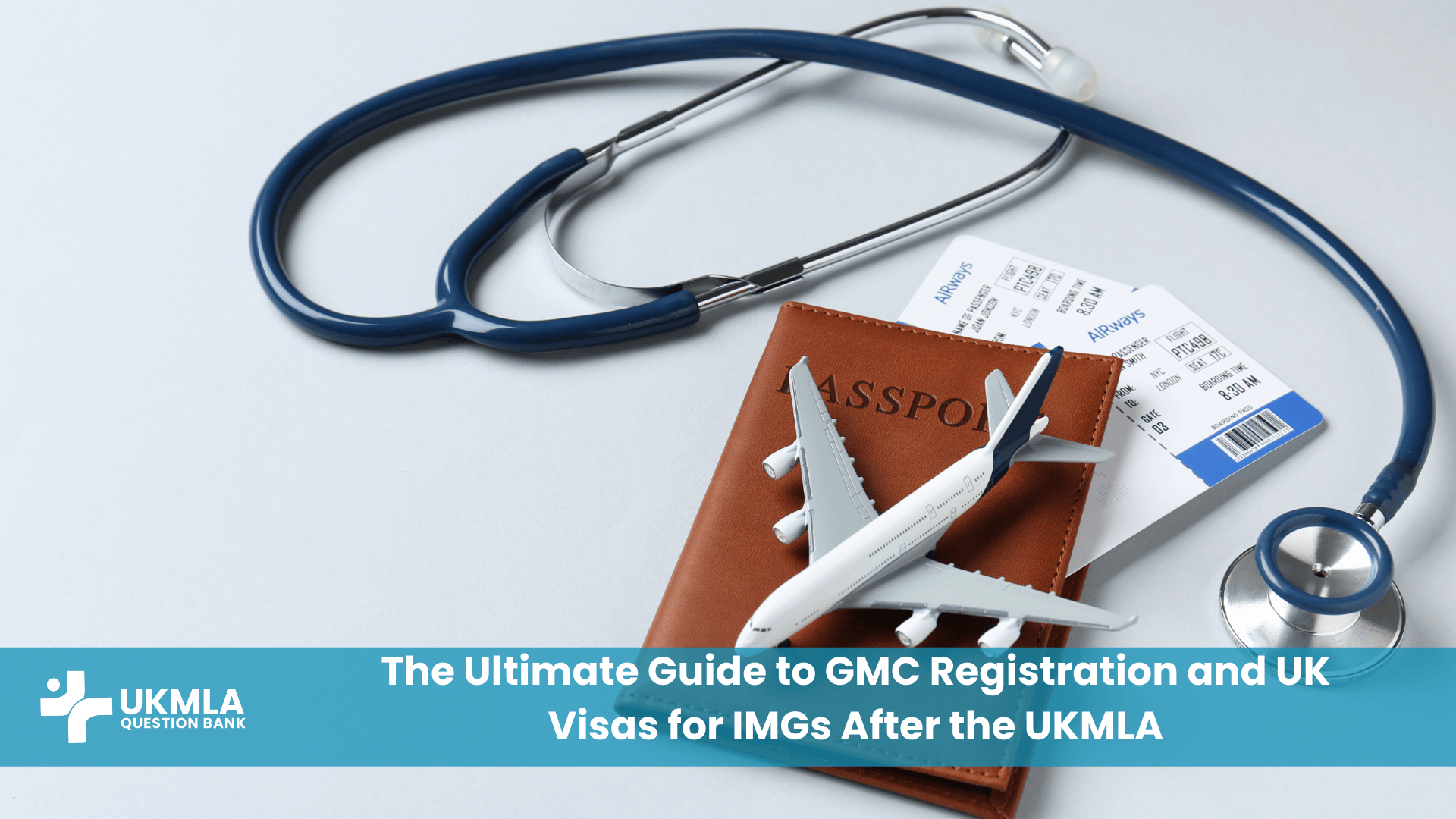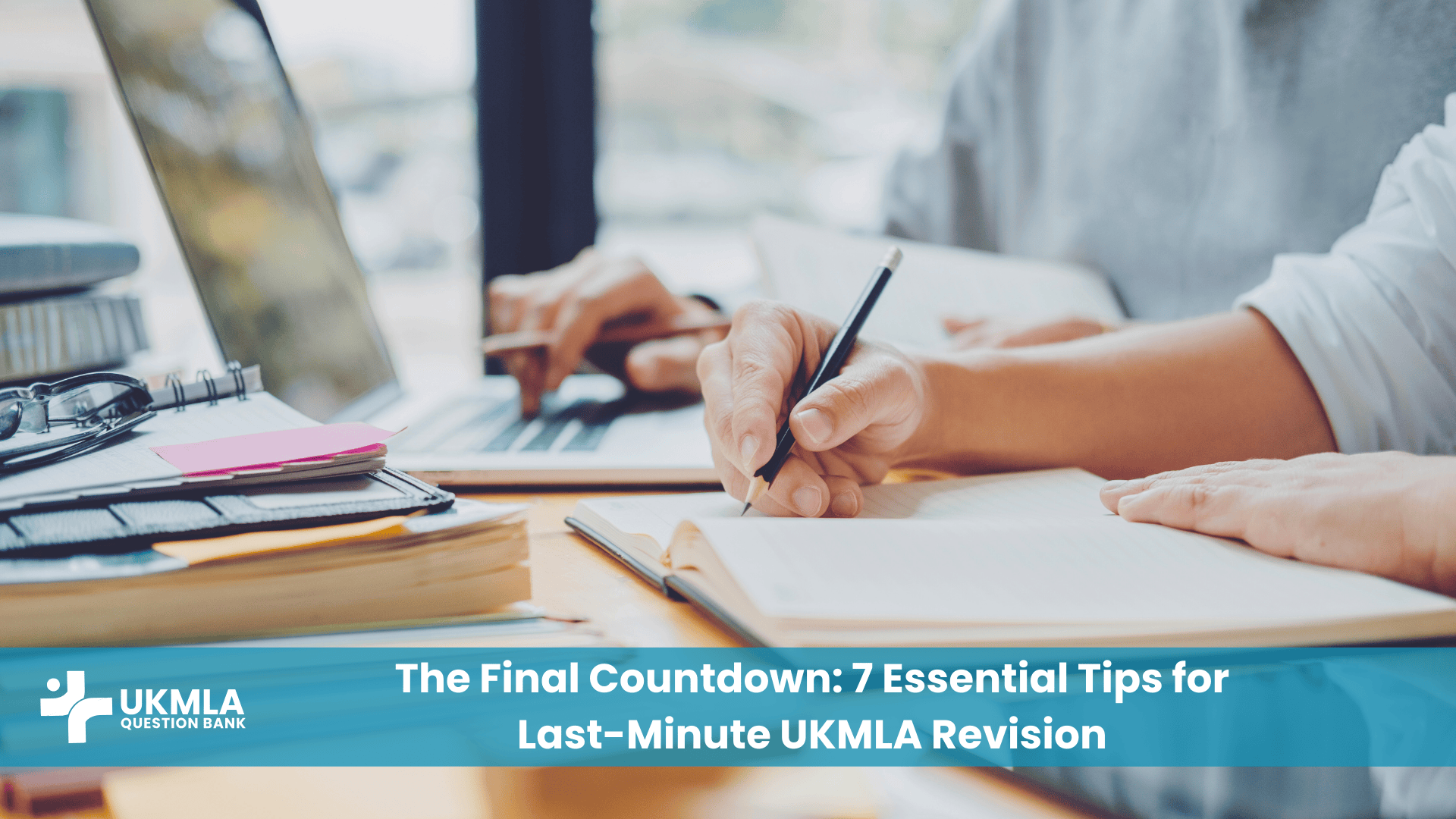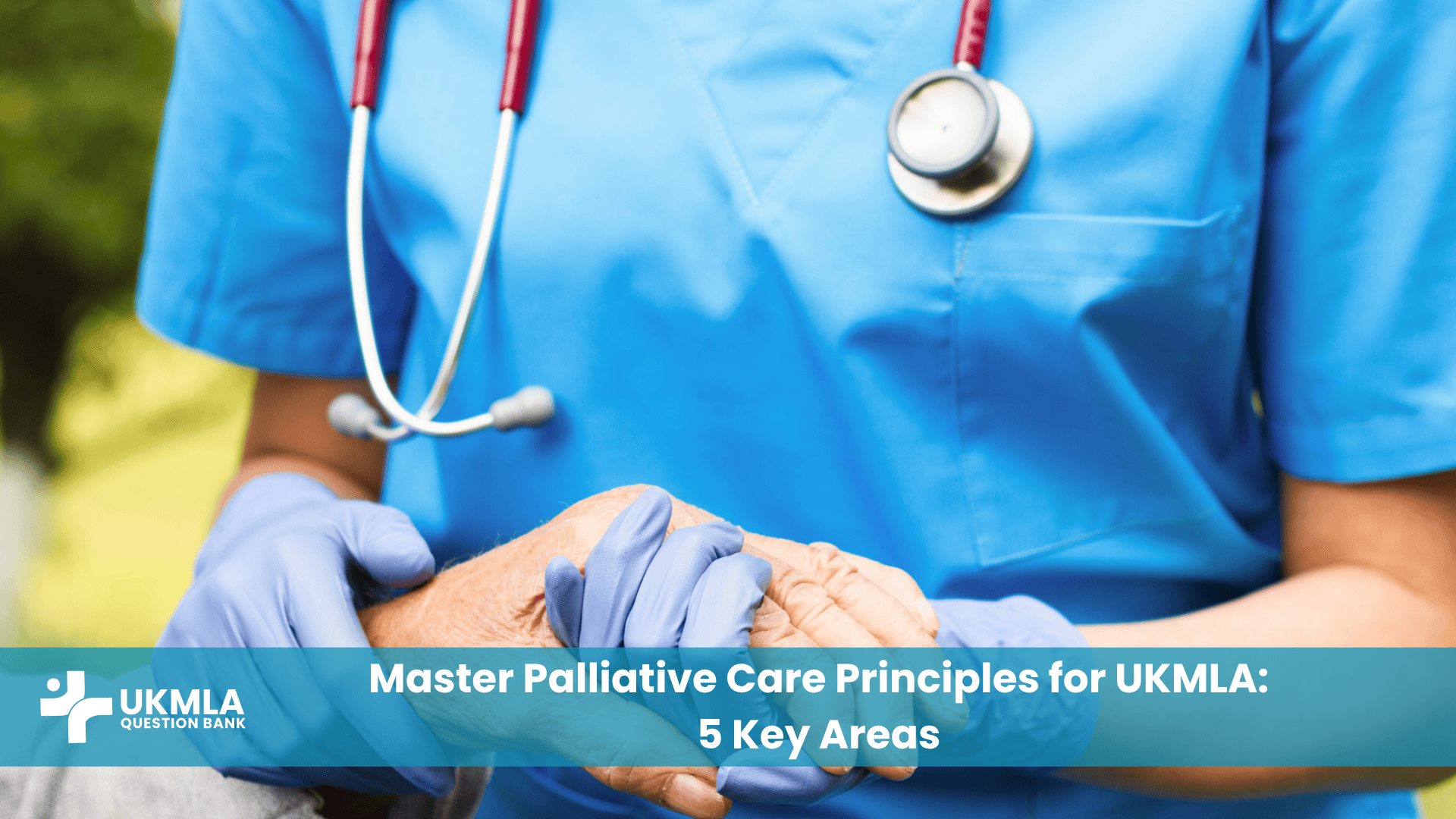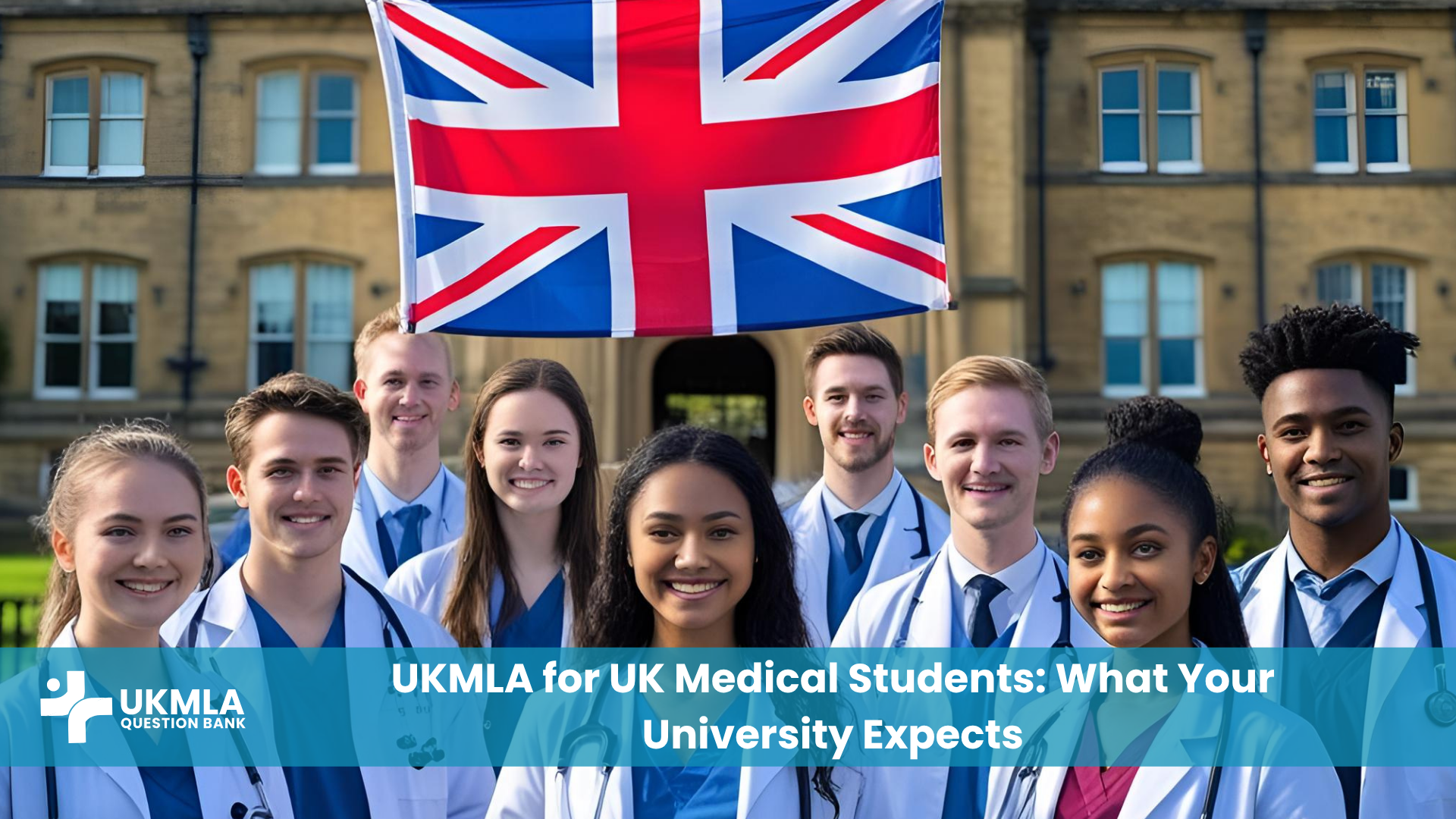Introduction
For International Medical Graduates (IMGs), learning about gmc registration for imgs after ukmla is the final, crucial step in a long and challenging journey. Passing the UKMLA is a monumental achievement that demonstrates you have the required clinical knowledge and skills to practice in the UK. However, it is the administrative process of securing your GMC registration and the correct visa that transforms your exam success into a license to practice and work in the NHS.
This process can seem daunting, filled with acronyms, specific document requirements, and strict timelines. This guide is designed to be your ultimate roadmap, breaking down the entire journey into a clear, five-step process. We will cover everything from the initial document verification to the visa application and your first steps upon arrival, providing a comprehensive overview to ensure you navigate this final stage with confidence and clarity.
Table of Contents
ToggleStep 1: The Pre-Application Checklist
Before you can even begin your GMC application, there are several foundational pieces of evidence you must have in order. Starting this process early is critical to avoid delays.
Verifying Your Primary Medical Qualification (PMQ)
The GMC needs to be certain that your medical degree is genuine and meets their standards. For most IMGs, this involves having your medical school diploma and transcripts verified by the Educational Commission for Foreign Medical Graduates (ECFMG) through their Electronic Portfolio of International Credentials (EPIC) service. You will need to create an EPIC account, upload your documents, and have them sent directly from your medical school to the ECFMG for verification. This process can take several weeks, so it should be one of the first things you do.
Proving Your English Language Proficiency
You must prove you have the necessary knowledge of English to communicate effectively and practice safely. This is typically done by achieving the required score on either the IELTS (International English Language Testing System) or the OET (Occupational English Test). The GMC has very specific minimum scores for each component (reading, writing, speaking, listening) that you must meet in a single sitting. Your pass certificate is usually valid for two years, so ensure it will still be valid when you submit your GMC application.
Step 2: The Online GMC Application
Once your preliminary documents are in order, you can begin the formal application process through the GMC’s online portal.
Creating Your GMC Online Account and Submitting Evidence
You will need to create an account on the GMC Online website. The application form will ask for detailed information about your personal details, qualifications, and your entire activity history since you graduated from medical school. You must account for all your time, including any periods of non-medical work or unemployment. You will then be prompted to upload digital copies of your evidence, such as your EPIC report, English language test results, passport, and certificates of good standing from any medical regulatory authority you have been registered with.
Step 3: The In-Person GMC Identity Check
After the GMC has reviewed and approved your online application and evidence, you will be invited for an in-person identity check. This typically takes place at the GMC’s office in Manchester. You will need to bring your original documents (passport, PMQ, etc.) with you for physical verification. This is the final step before the GMC will grant you registration. It is important to note that you must typically complete this identity check within three months of the GMC approving your online application.
Step 4: Securing a UK Job Offer & Certificate of Sponsorship (CoS)
You cannot apply for a UK work visa until you have a job offer from an approved NHS employer. This is a critical step that runs in parallel with your GMC registration. Most IMGs will be applying for jobs through the NHS Jobs website or, if eligible, through the national recruitment process like the UK FPAS application.
Once you have accepted a job offer, your new NHS Trust will act as your sponsor and assign you a Certificate of Sponsorship (CoS). The CoS is not a physical certificate but a unique reference number that contains information about you and the job you have been offered. This CoS number is essential for your visa application.
Key Tip: Many IMGs secure a job offer before completing their final GMC identity check. You can attend job interviews and receive offers while your GMC application is being processed.
Step 5: The Final Step in gmc registration for imgs after ukmla – Applying for Your Visa
With your GMC registration approved and your Certificate of Sponsorship in hand, you can apply for your visa.
Understanding the Health and Care Worker Visa
The most common visa route for doctors is the Health and Care Worker visa. This is a specific type of Skilled Worker visa that offers a faster processing time and reduced application fees for eligible healthcare professionals. You must apply for this visa from your home country before you travel to the UK. For the most up-to-date requirements, you must always consult the official GOV.UK website.
A Realistic Budget: Estimated Costs for Registration and Visa
The journey to UK practice involves significant financial investment. Budgeting carefully is essential. The costs below are estimates and can change, so always check the official websites for current fees.
Table 1: Estimated Costs for an IMG’s UK Registration Journey
| Item | Estimated Cost (GBP) | Notes |
| EPIC Verification | ~$250 USD | Includes initial account setup and first set of credentials. |
| English Language Test | £175 – £350 | Depends on whether you take IELTS or OET. |
| GMC Application Fee | ~£160 – £430 | Varies based on your country of graduation. |
| Health & Care Worker Visa | ~£284 – £551 | Varies based on the duration of your visa (up to 3 years vs. over 3 years). |
| Immigration Health Surcharge (IHS) | £624 per year | This must be paid upfront for the full duration of your visa. |
| Criminal Record Checks | ~£20 – £60 per country | Required from any country you’ve lived in for 12+ months in the last 10 years. |
This table does not include other potential costs like travel for the ID check, initial accommodation, or costs for any supporting documents like translations.
You’ve Arrived in the UK: Your First Practical Steps
Once your visa is approved and you arrive in the UK, a new set of administrative tasks begins. Tackling these quickly will ensure a smooth start.
Collecting Your Biometric Residence Permit (BRP)
Your BRP is your official visa and proof of your right to work in the UK. You will typically need to collect it from a designated Post Office branch within 10 days of your arrival. Your visa decision letter will tell you where to collect it from. The BRP is a vital document you will need for right-to-work checks with your employer and for opening a bank account.
Opening a UK Bank Account
You will need a UK bank account to receive your salary. Many UK high-street banks offer accounts for international professionals. To open an account, you will typically need your BRP, proof of address (which can be a letter from your NHS employer confirming your address and employment), and your passport.
Registering with a General Practitioner (GP)
As a resident and NHS employee, you are entitled to NHS healthcare. One of your first steps should be to register with a local GP surgery. You can find your nearest surgeries using the NHS website. Registering early ensures you have access to primary care when you need it.
Frequently Asked Questions (FAQ) about GMC Registration & Visas for IMGs
This can vary significantly, but a realistic timeline is 4-6 months. The EPIC verification and securing a job offer are often the longest parts of the process.
This is a document from a medical regulatory authority in a country where you have practiced. It confirms you are in good standing and have not been subject to any disciplinary action. You typically need one from every country you’ve been registered in over the last five years.
No. You must have been granted GMC registration before you can apply for your Health and Care Worker visa. The GMC registration is a key piece of evidence for the visa application.
The IHS is a mandatory fee that gives you access to the NHS on the same basis as a UK resident. It must be paid upfront for the entire duration of your visa when you apply.
No, you do not need a job offer to start the GMC registration process. Most candidates work on their GMC application and job applications at the same time.
If your medical school is not on the list of overseas medical qualifications that the GMC accepts, you may not be eligible for this registration pathway. You must check this on the GMC website before you begin.
Yes, the Health and Care Worker visa route allows you to bring dependents (your partner and any children under 18) with you to the UK.
GMC registration means you are on the official register of medical practitioners. A license to practice is what allows you to carry out clinical duties, such as treating patients and prescribing medication. For your first registration, these are granted together.
If your overseas internship experience is not deemed acceptable by the GMC, you may be required to complete the UK Foundation Programme (Year 1) before you can be granted full GMC registration. This is a common path for many IMGs, as explained in our guide to after the UKMLA for IMGs.
Incomplete or incorrect documentation. The most common delays are with the EPIC verification process or with providing a complete and continuous activity history. It is vital to be meticulous with your paperwork.
Conclusion
Successfully passing the UKMLA is a landmark achievement, but it’s the first step in a two-part process. The second part—navigating the administrative maze of GMC registration and the UK visa system—requires a different kind of skill: meticulous organization, attention to detail, and a clear understanding of the required steps. By starting early, gathering your documents methodically, and following the official guidance from the GMC and UKVI, you can ensure this final stage is as smooth as possible.
This entire journey, from starting your UKMLA prep as an IMG to your first day on the wards, is a testament to your dedication. Treat this final administrative phase with the same seriousness and strategic planning that you applied to the exam itself. Doing so will ensure you can transition smoothly from being a successful exam candidate to a practicing doctor in the UK, ready to begin your new career.




